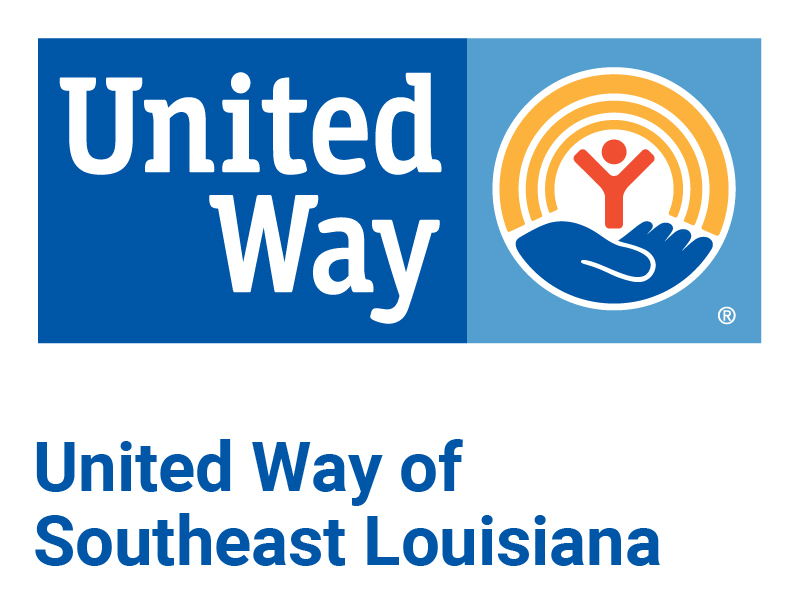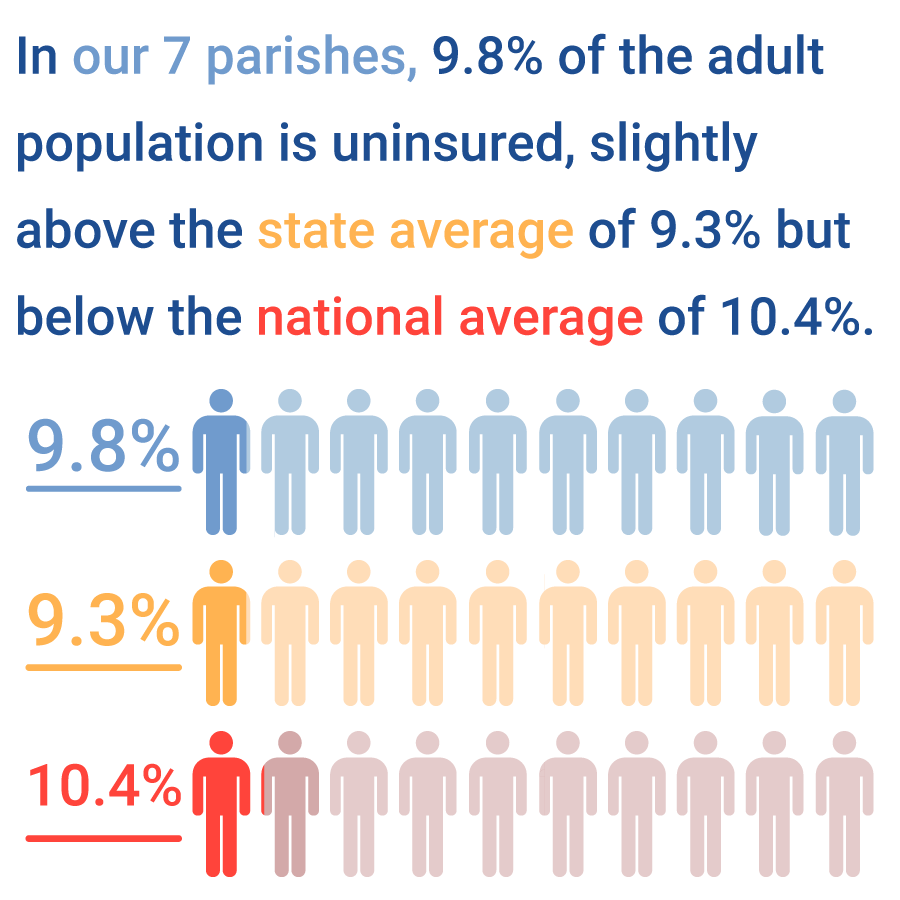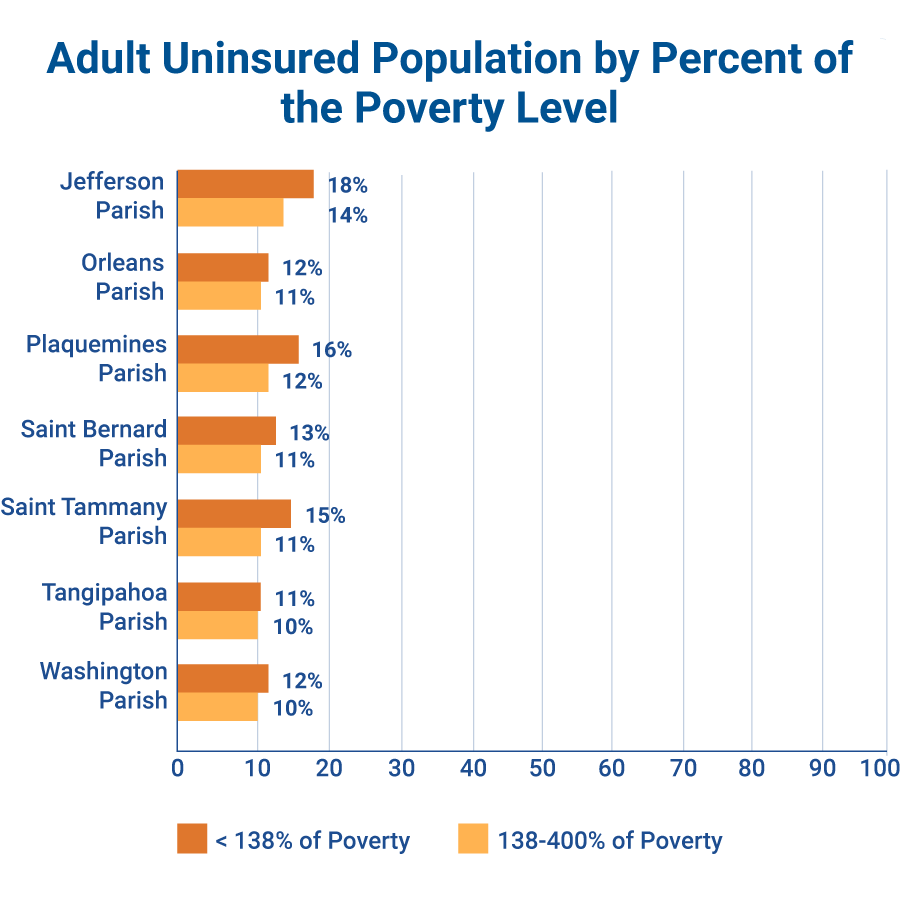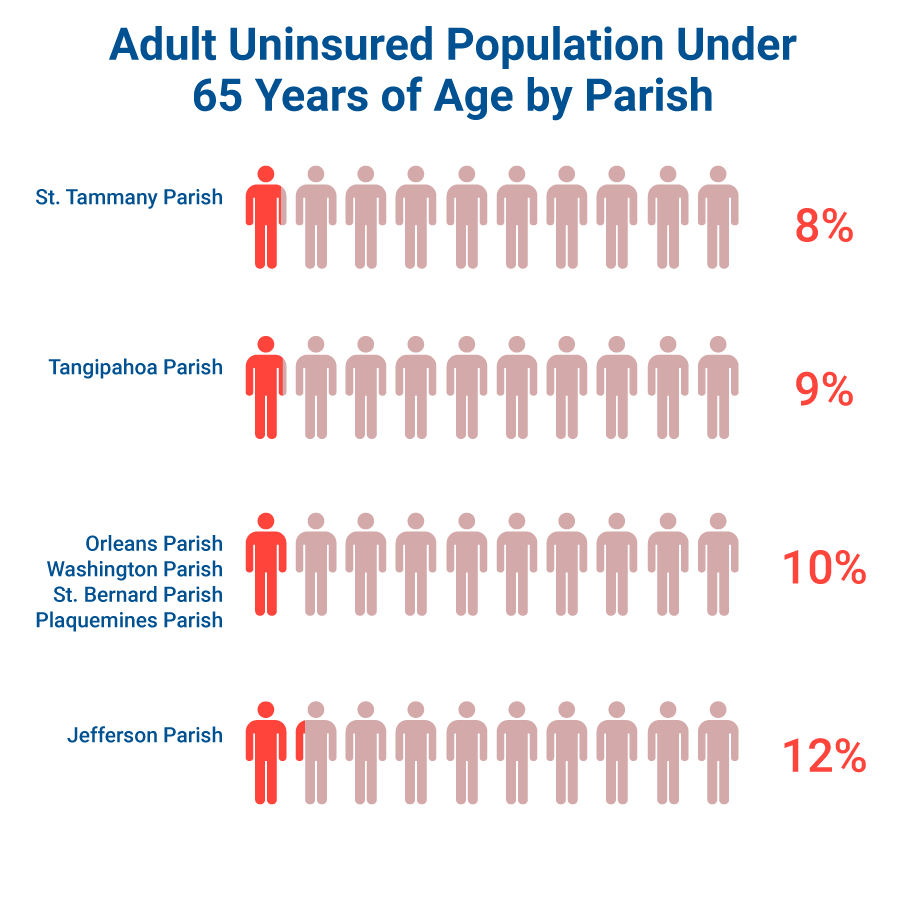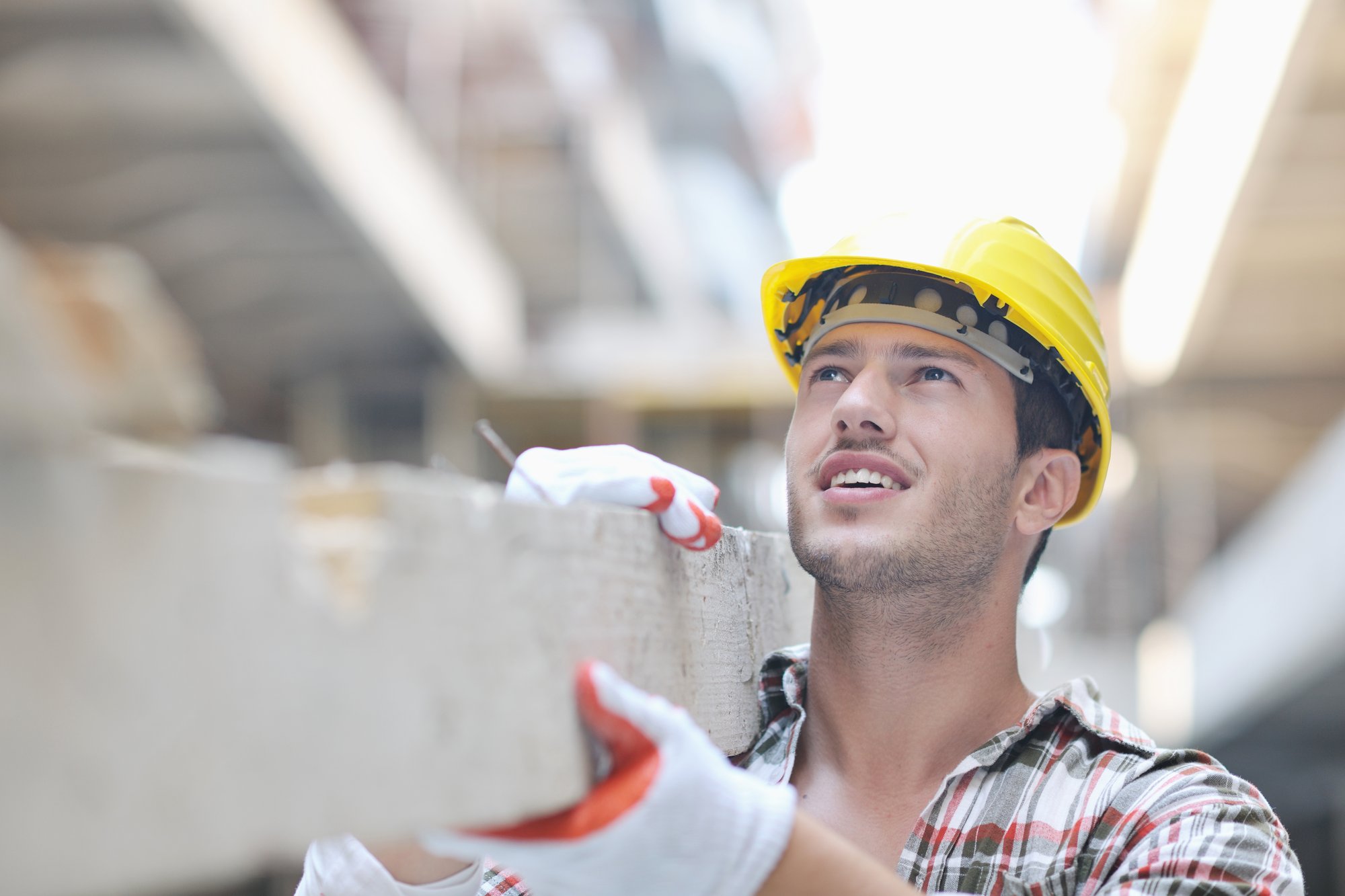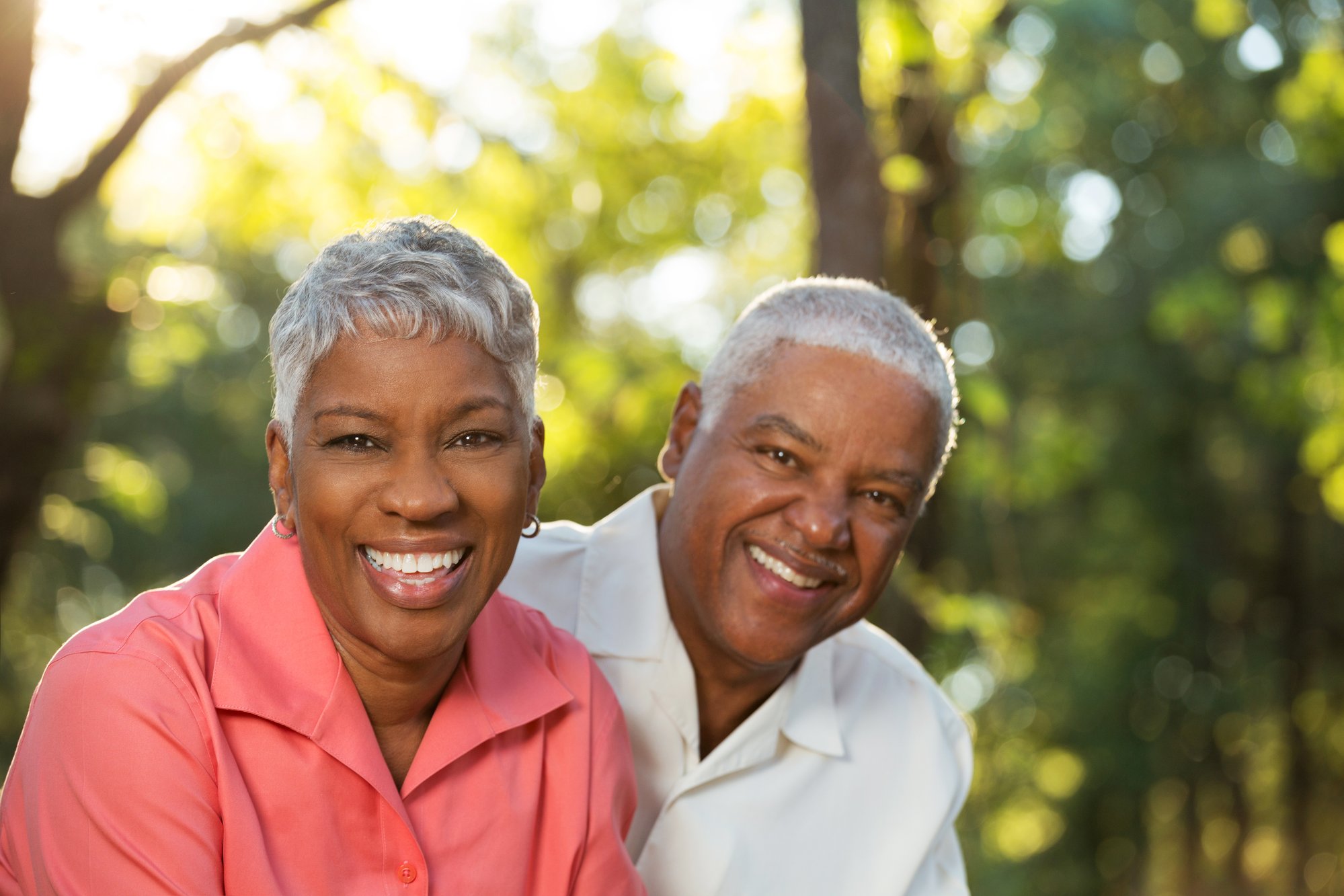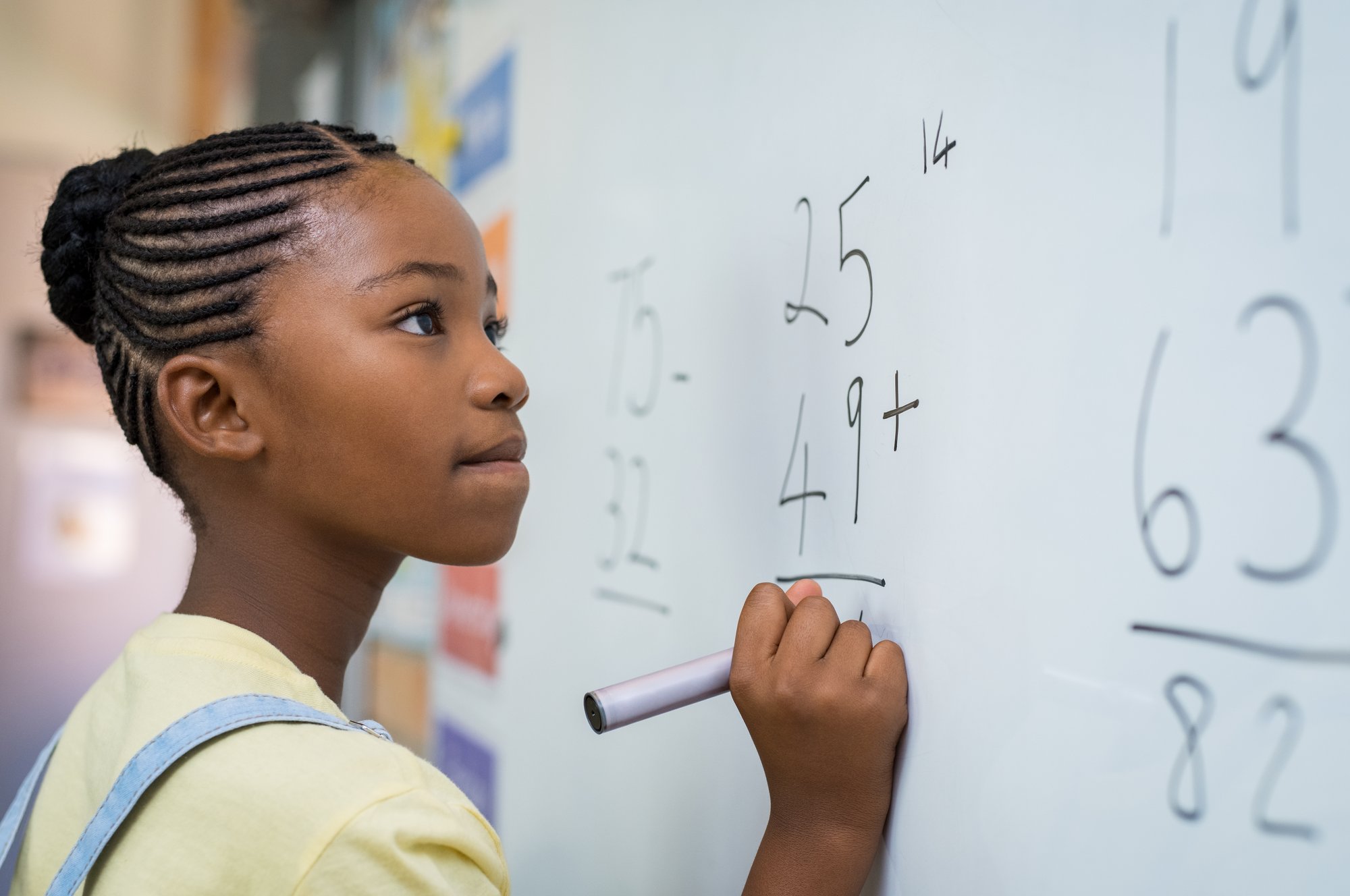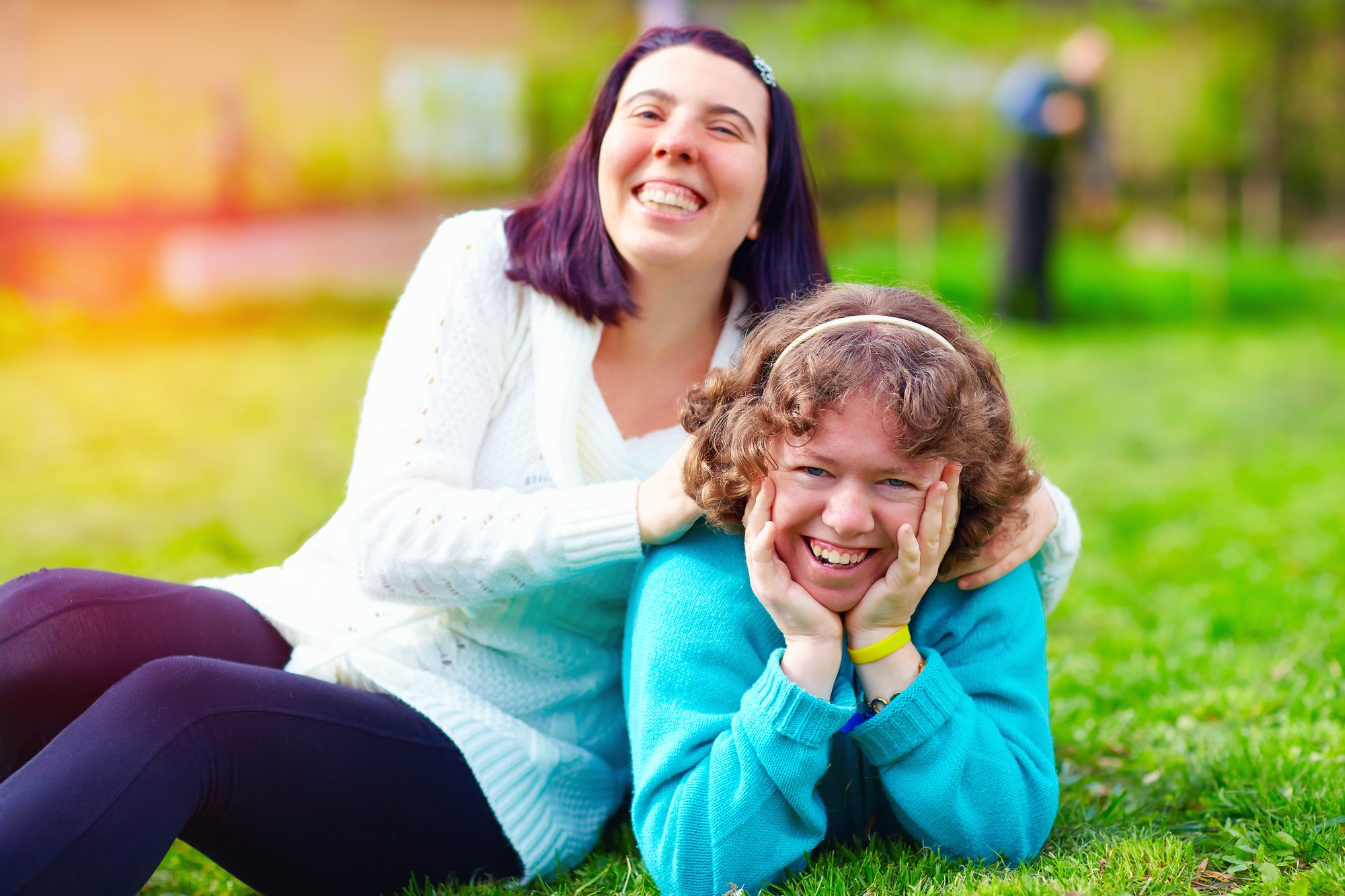Inadequate access to health insurance can be a barrier to personal wellness. Health insurance coverage increases an individual’s likelihood of receiving higher-quality medical care and is important for preventive care. Nonelderly (persons 65 years and younger) are much more likely to lack health insurance than the elderly because most adults (65 years and older) have insurance through Medicare. When a community has a large percentage of nonelderly residents without health insurance, costs to society are often high, at times taking the form of costly emergency room visits and lost worker productivity.
According to data from 2018, the entire area served by United Way of Southeast Louisiana has a smaller percent of nonelderly populations without health insurance than the national average, besides Jefferson Parish. In this pre-COVID-19 pandemic data, Jefferson Parish had the highest rate of uninsured nonelderly at about 12 percent, followed by Plaquemines Parish at just over 10 percent. Similarly, just over 10 percent of nonelderly lack health insurance on average nationwide.
Not surprisingly, individuals with lower incomes are less likely to have health insurance than those with higher incomes. Louisiana expanded Medicaid eligibility.[i] July 1, 2016, and now individuals earning less than 138 percent of the poverty level may be eligible for Medicaid. Nationwide, about 17 percent of those at 138 percent or less of the poverty level are uninsured. As of 2018, all parishes but one have greater insurance coverage rates among low-income nonelderly than the national average.
